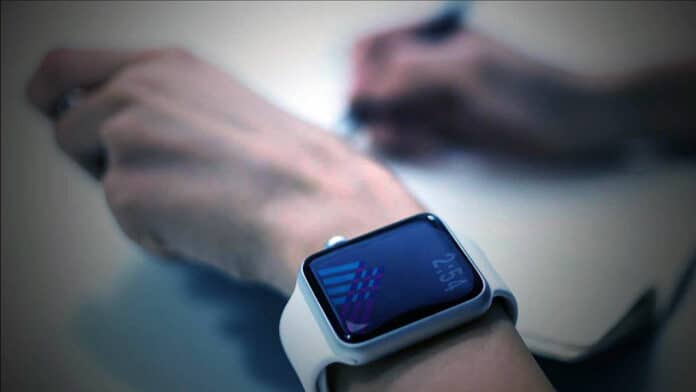Mental health issues are common and affect how we think, feel, and act; mental health can be challenging to deal with. The World Health Organization considers psychological disorders the leading cause of disability in the world. So, monitoring mental health is very important to understand better who is at psychological risk.
However, resources for evaluating mental health and its treatment are limited. Smart devices such as smartwatches or other devices can measure users’ physical health problems. Smart devices can help to improve access to mental health services through a smartphone application that monitors well-being.
New York-based Mount Sinai Health System researchers have developed an algorithm to measure mental health issues using a wearable device such as an Apple watch.
Wearable devices collect physical data of the user without active input from users, and examinating this data by machine learning provides a novel approach to automate mental health assessments.
“Wearables provide a means to collect information about an individual’s physical state continually. Our results provide insight into the feasibility of assessing psychological characteristics from this passively collected data,” said first author Robert P. Hirten, MD, Clinical Director, Hasso Plattner Institute for Digital Health at Mount Sinai.
To determine if machine learning models can be trained to differentiate a person’s resilience and psychological fitness level using data from wearable devices, the researchers analyzed data from the Warrior Watch Study. It is a phone app to administer questions and collects data from an Apple Watch worn by participants.
Data was collected from 329 registered healthcare workers using Apple Watch to measure heart rate variability and resting heart rate during the follow-up period. Surveys were initially organized to measure resilience, optimism, and emotional support. The measures collected were found to be predictive of identifying resilience or well-being status.
Although the Warrior Watch Study was not designed to assess this endpoint, the findings support further assessing psychological characteristics from passively collected wearable data.
“We hope that this approach will enable us to bring psychological assessment and care to a larger population, who may not have access at this time,” said Micol Zweig, MPH, co-author of the paper and Associate Director of Clinical Research, Hasso Plattner Institute for Digital Health at Mount Sinai. “We also intend to evaluate this technique in other patient populations to further refine the algorithm and improve its applicability.”
To that end, the research team plans to use wearable data to monitor a range of physical and mental disorders and diseases. The simultaneous development of sophisticated analytical tools with artificial intelligence can facilitate the analysis of data collected from these devices and apps to identify patterns associated with a given mental or physical disease state.
Journal reference:
- Robert P Hirten, Maria Suprun, Matteo Danieletto, Micol Zweig, Eddye Golden, Renata Pyzik, Sparshdeep Kaur, Drew Helmus, Anthony Biello, Kyle Landell, Jovita Rodrigues, Erwin P Bottinger, Laurie Keefer, Dennis Charney, Girish N Nadkarni, Mayte Suarez-Farinas, Zahi A Fayad. A machine learning approach to determine resilience utilizing wearable device data: analysis of an observational cohort. JAMIA Open, 2023; DOI: 10.1093/jamiaopen/ooad029
